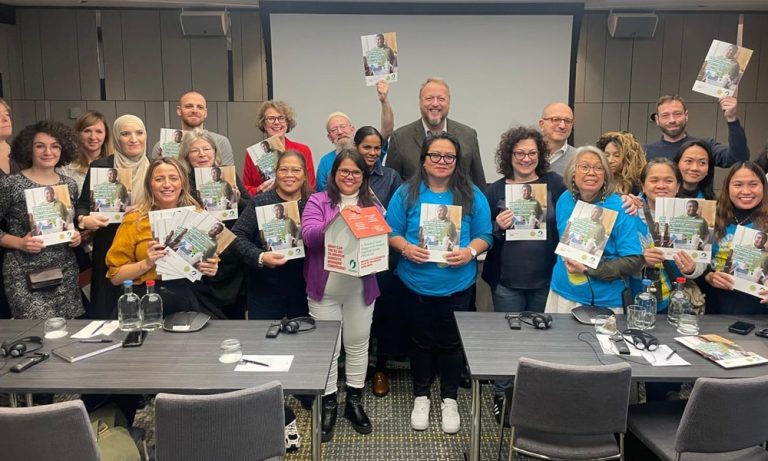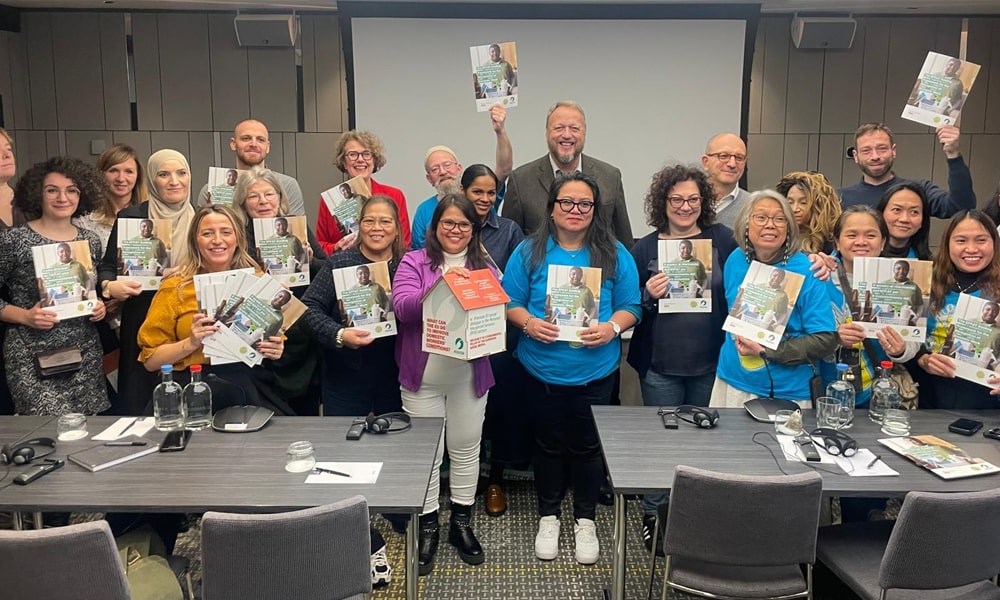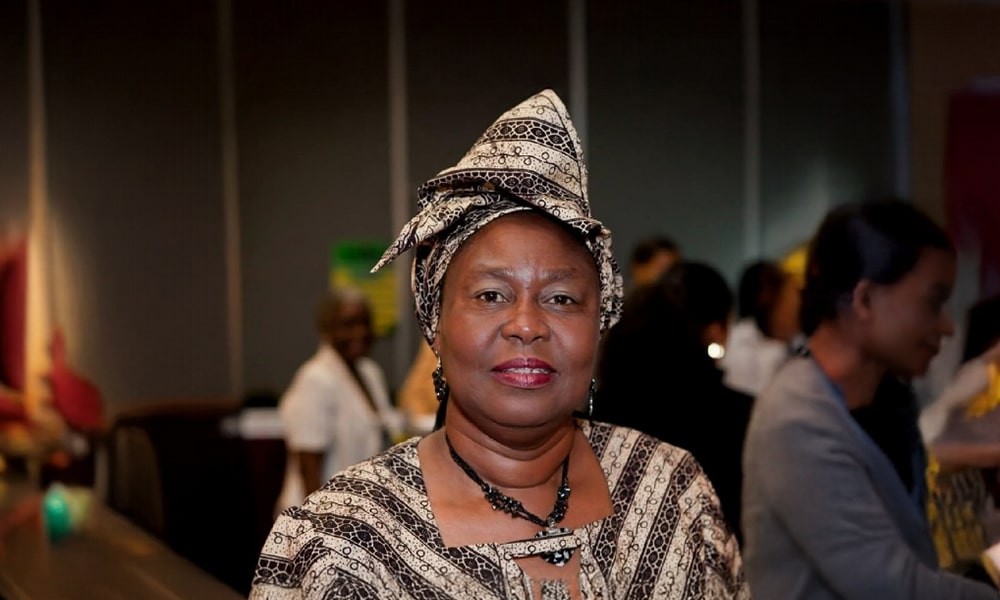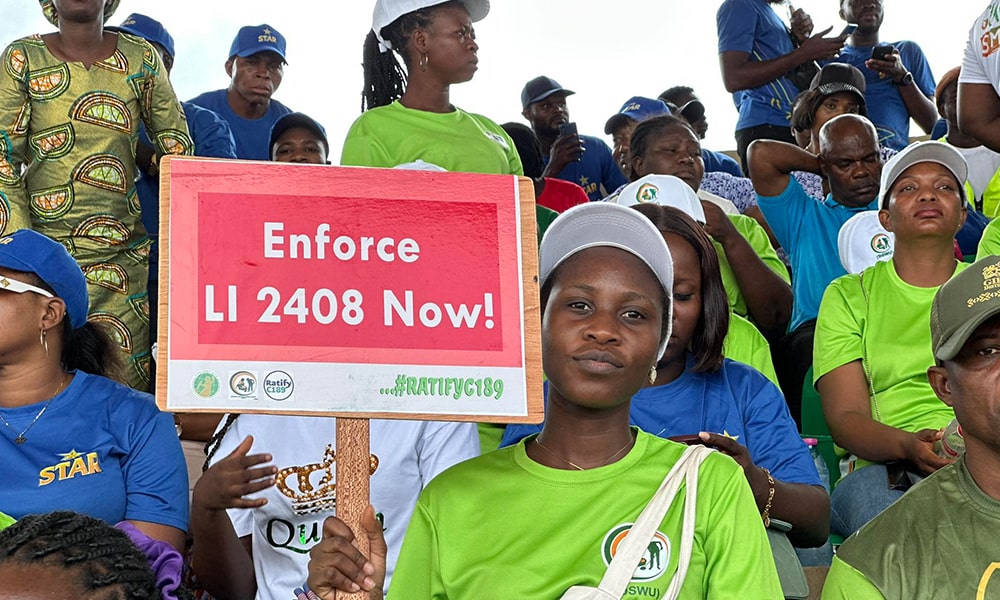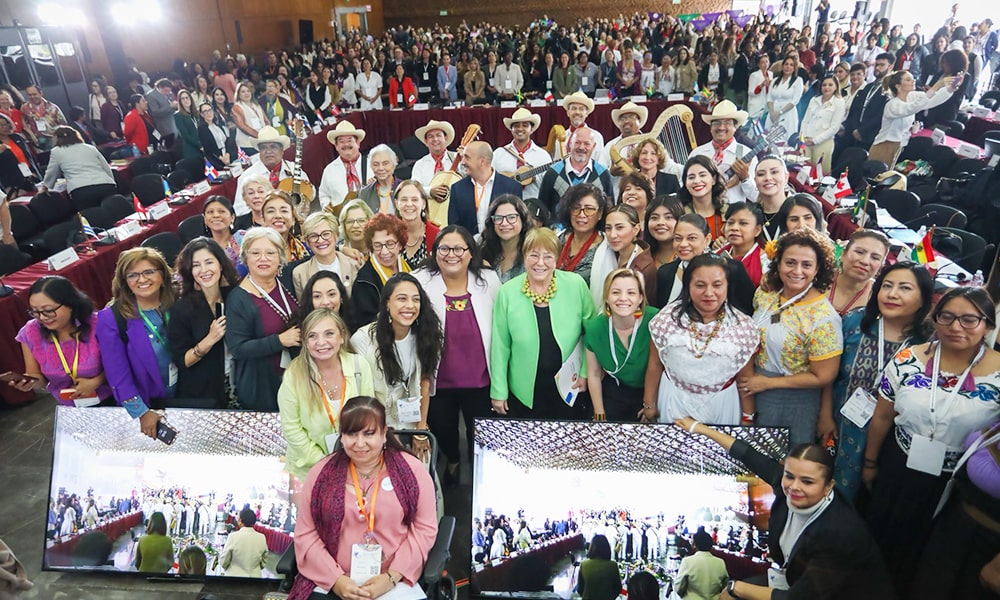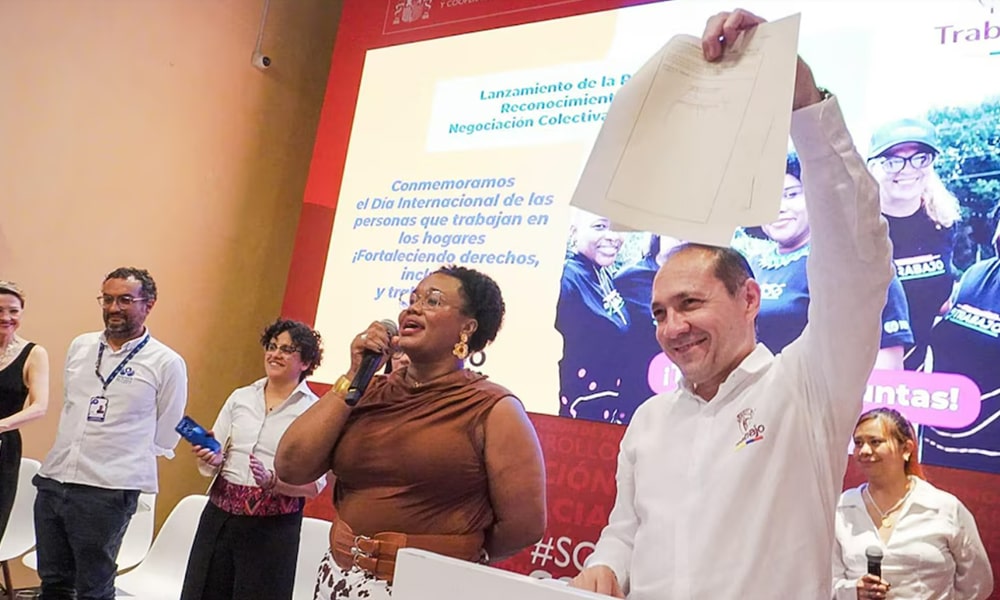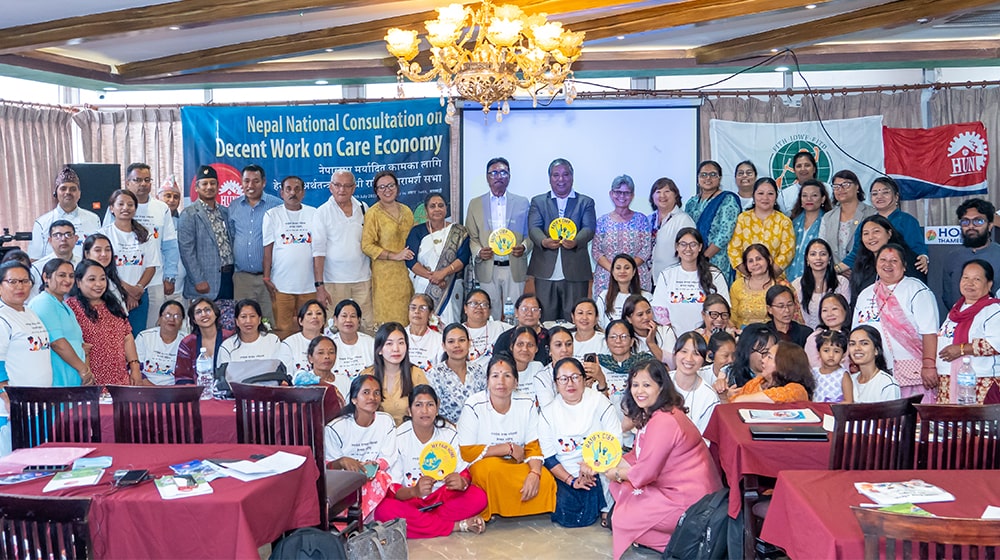We achieved the implementation of a Multisectoral Committee for Domestic Workers’ Rights
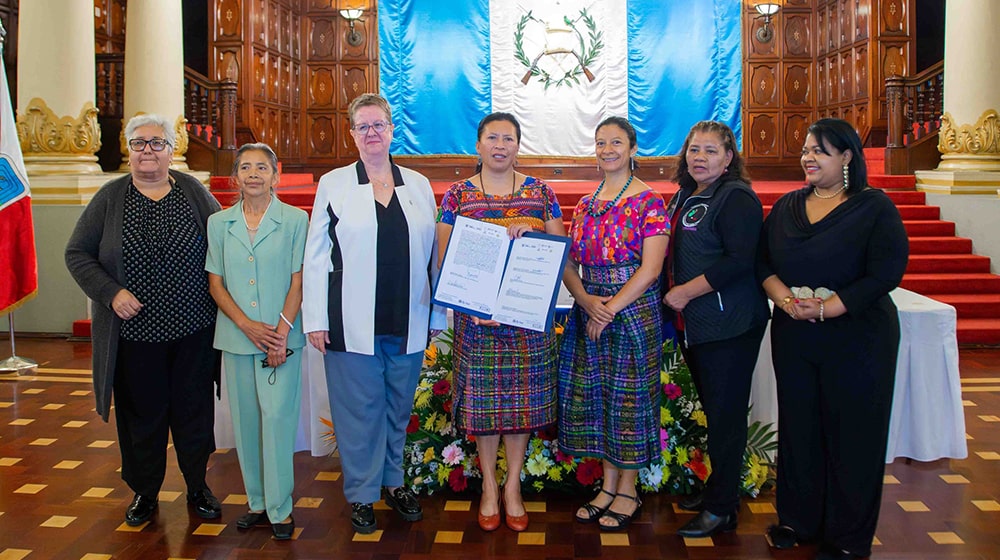
As a result of the advocacy and social dialogue efforts we have been carrying out in Guatemala together with our affiliate SITRADOMSA, CENTRACAP, CONLACTRAHO, and other organizations of women workers, we signed an Interinstitutional Cooperation Agreement to establish a Multisectoral Committee for Women Domestic Workers’ Rights. We also secured a commitment from lawmakers to advance the decent work agenda for our sector. We are confident that these initiatives will pave the way for the prompt ratification of ILO Convention 189 and the protection of the nearly 400,000 women who care for Guatemalan society.
On March 25, we reached a historic agreement with the Presidential Secretariat for Women, the Ministry of Labor and Social Welfare (Mintrab), and the Ministry of Social Development (Mides) to set up a multisectoral committee that will coordinate efforts to advance the decent work agenda for domestic workers, who continue to perform their work without legal protection and under degrading labor conditions. The following day, during our public forum “Domestic Work in Service of Guatemalan Families,” Danilo Madrazo, Chair of the Congressional Labor Committee, along with legislators Ricardo Alarcón and Gerson Barragán, pledged to promote the ratification of Convention 189.
“It’s time to protect domestic workers’ fundamental rights, promoting human dignity and social justice in line with international standards, especially ILO Convention 189. The proposal is already in Congress—it only takes the commitment and effort of lawmakers to move it forward. However, the fact that C189 hasn’t been ratified yet doesn’t mean that public policies can’t be implemented now to protect domestic workers—the very women who care for homes and families so that others can go to work,” — said Labor Minister Miriam Roquel.
It’s worth noting that in August 2024, an IDWF delegation led by Ruth Díaz, a member of our Executive Committee representing Latin America, and our Regional Coordinator Betty Tola, visited Guatemala to launch a series of strategic actions and a massive campaign to push for the ratification of C189. These efforts were carried out in coordination with our sister organization CONLACTRAHO, SITRADOMSA, CENTRACAP, and other key allies, with the support of the ILO. The fruits of that initiative can now be seen in the positive response from the Guatemalan government and lawmakers.
“What’s happening in Guatemala is historic. In Latin America, only three countries have not ratified ILO Convention 189: Guatemala, Honduras, and El Salvador. But thanks to the decisive leadership of President Bernardo Arévalo and Labor Minister Miriam Roquel, we’ve taken a historic step toward the implementation of the Convention even before its ratification. For the first time in the country, there will be discussions around rights, wages, contracts, social security, and labor inspections. This means that domestic workers—most of whom are Indigenous women—will no longer be invisible. They will have rights, like any other worker.”
Ruth Díaz, IDWF Executive Committee member representing Latin America
The Situation of Domestic Workers in Guatemala
According to the ILO (2021), there are 388,240 paid domestic workers in Guatemala, 91.1% of whom are women. They make up 15% of the country’s female workforce—one in every three women in paid employment is a domestic worker. Despite the immense value of their work—which makes all other work possible by sustaining households, families, and society as a whole—98.3% face extremely precarious working and living conditions.
Many domestic workers live in the homes of their employers, working under slave-like conditions—14-hour days, six and a half days a week—validated by the Labor Code, which states that domestic work “is not subject to standard working hours or daily working time limits,” even though the Constitution explicitly says that “no person shall be subjected to servitude or to any condition that undermines their dignity.”
This deeply rooted perception of servitude surrounding domestic work is also reflected in wages, which amount to only a third of the legal minimum wage and are set at the employer’s discretion, since they are not regulated by law. The lack of legal protection also opens the door to other abuses, such as payment in kind, no year-end bonus, lack of access to social protection, no severance pay, and frequent cases of mistreatment, discrimination, sexual harassment, and violence.
Although Guatemala’s Social Security Institute (IGSS) launched the Precapi program in 2009 to provide coverage for domestic workers, it only includes workers in the department of Guatemala and offers limited benefits—only workplace accidents and maternity leave. As of 2021, the program had just 324 registered workers, representing only 0.1% of the sector.
A Longstanding Struggle
Domestic workers’ organizations in Guatemala have been fighting for dignified working conditions for 25 years. Yet the country has still not legislated in their favor or ratified ILO Convention 189, adopted in June 2011 and ratified by 18 countries in Latin America. The Convention sets out international standards to promote decent work for domestic workers and to guarantee them the same rights as all other workers. In 2015, the Ministry of Labor issued a favorable technical opinion supporting the ratification of C189, which was then sent to Congress. It passed a first reading eight years ago, but has been shelved ever since.
Ratifying C189 means recognizing the social and economic value of paid domestic work and upholding the dignity of those who perform it. Today, the Guatemalan government has both the power—and, more importantly, the responsibility—to put an end to the exclusion and injustice endured by domestic workers. We hope that the political will shown in recent days will soon translate into concrete actions that improve the lives of these women and their families.

